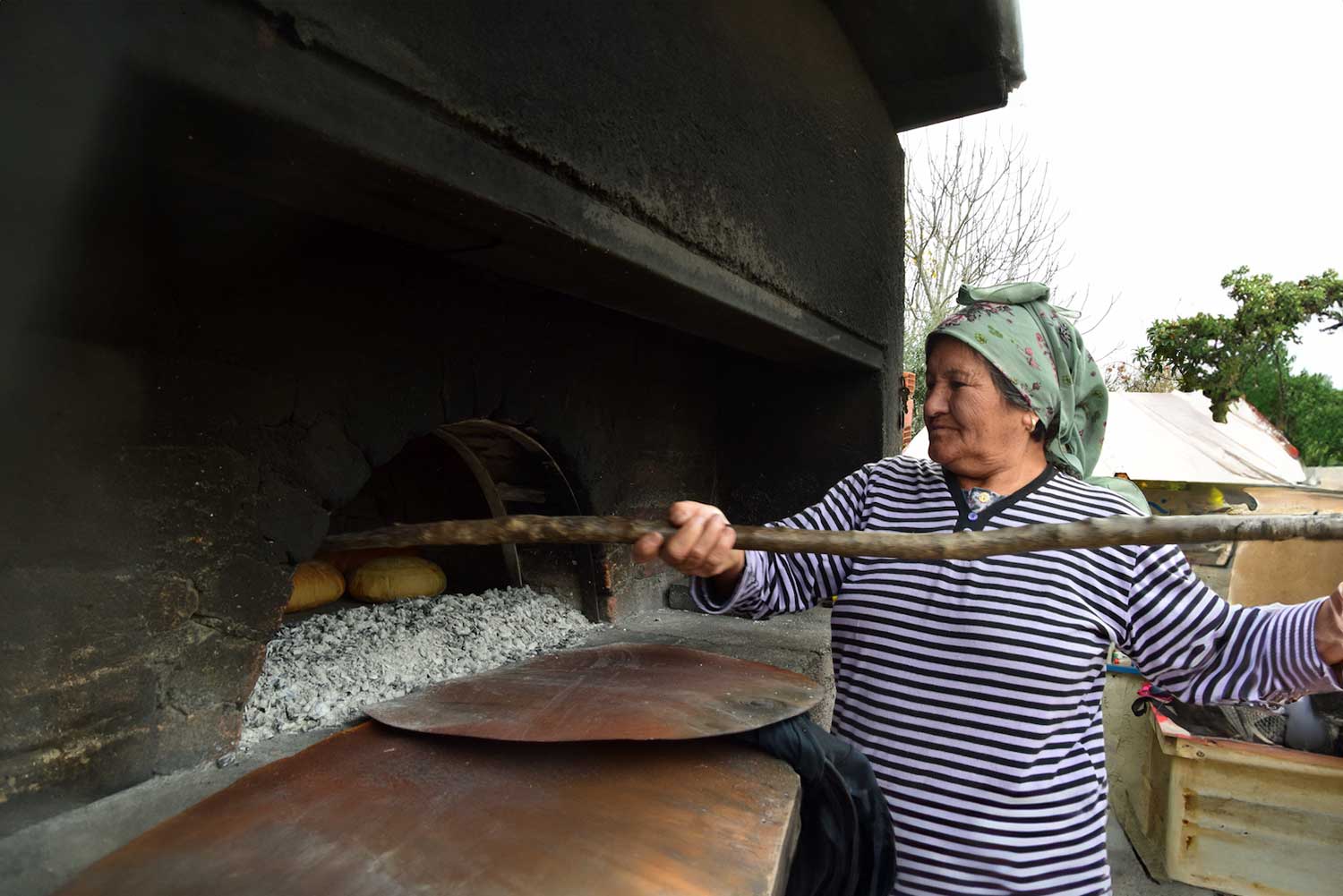How Women Market Traders are Revitalising Village Life in Izmir
Female entrepreneurship has boosted the local economy and is passing cultural heritage to future generations.
The village of Ulamış, in the coastal Seferihisar district of western Turkey’s Izmir province, bears the typically charming characteristics of the Aegean. Amidst its snow-white houses, narrow streets, colourful murals and olive trees, Ulamış now hosts festivals and events that attract visitors and keep time-honoured traditions alive.
Although agriculture has long underpinned the rural economy here, a farmer’s market that opened in 2009 has enabled women producers to take the lead. Black bread, armogalo cheese, condiments, and other local delicacies are among the goods on sale.
Many of the vendors are women, and their entrepreneurship has helped revitalise local production. Besides contributing to the village’s economy, they are ensuring that the cultural heritage of Ulamış is passed on to future generations.
"To us, the soil is love.”
Adalet Kahraman, 65, has been selling black bread, based on a family recipe, for the past four years.
“I was born and raised in Ulamış. I worked and grew old here, I spent my whole life in this place,” she told Inside Turkey.
Kahraman started off by baking for herself and her kids in a small oven she set up, but her neighbours encouraged her to start selling loaves.

The bread is made with Karakılçık flour, milled from an ancient Anatolian wheat variety that has become popular again in recent years.
“Rich in fibre, with a unique flavour and high nutritional value, Karakılçık wheat used to be on the verge of extinction, but the fact that ancestral grains yield the best results in bread production has set the grain aside from others and made it the top-planted type of wheat among farmers,” wrote chef Taha Dinç in his book ‘Everything About Karakılçık Wheat Sourdough’.
Kahraman sells the ten loaves she bakes each day to regular customers.
“I used to knead the dough in the bowl with my hand, but that was more difficult and tiring,” she said. “Now I make the bread with the help of a machine. I take orders on the phone, bake the bread for my client base of 20 to 30 people and that’s how I make a living in the village. I’m happy to bake them and my friends are happy to eat.”
Kahraman’s 46-year-old daughter Aslı Esenli said that both she and her mother were “women who produce”. Esenli, a farmer by background, makes a living by selling her handmade soaps, noodles and vinegar at the village market.
"We are the ones that keep that culture alive."
“Everyone in our village is very hardworking, the living conditions are obvious. You have to do this work if you live in the village,” Esenli told Inside Turkey, adding that women in the village also take an active role in social life, for instance in craft and theatre groups.
Each day, Esenli makes her rounds of the village on her motorbike, helping out her elderly neighbours. She cleans the roots of olive trees, picking any ripened fruits and feeds chickens and other animals.
Esenli says that she loves rural life. “The soil is abundance. Without it everyone, whether they live in the village or the city, would starve. To us, the soil is love,” she said.
For the past five years, Esenli has also worked at the Ulamış village theatre. She first got involved by taking acting lessons offered by the municipality in Seferihisar, the local town, but had to give it up as the commute was too long. When acting classes came to the village, however, she got involved again.
“Honestly, I was destined to do it the second I walked in, I never walked out again,” she said. “A majority of our theatre company is made up of women. My 86-year-old aunt is in the company, so is 75-year-old Auntie Ayşe, and so are her daughter and granddaughter.”
Supported by the Izmir municipality, the theatre has staged three self-devised plays so far. From Daily Life, Wedding or Drums and most recently Ladies of the Village have toured multiple venues. With a majority female cast, the plays show the detail and colour of village life. Tradition, friendship and ethnic identity are among the issues tackled.
Other villagers initially saw the acting lessons as odd and regarded theatre-goers with suspicion, Esenli said.
“Once they saw us on stage, they became part of the activity and started looking forward to the plays. Theatre has done so much for us, women have become more independent and confident. They no longer wonder whether they can do something, instead they say ‘I can do this,’” she said.

Suna Kalaycı, 67, makes and sells soap at the village market.
“I’m a farmer, a producer, a mother. I do all of my work with pleasure, and making soap is my favourite activity. This is because soap-making is a culture, and we are the ones that keep that culture alive,” she said.
Kalaycı obtains the acid required for her natural soaps from olive oil pulp and likes to add variety to her products with a range of natural ingredients. Lavender, honey and donkey or goat milk are among her most commonly-used additions. Marketing soaps through her Instagram account and her stall at the market, Kalaycı said that she prioritises low quantity, high quality products.
Families have been a great support to women producers, she adds. “My husband and my kids were always supportive of my business and always stood by my side. They never told me I couldn’t do it, they were always appreciative,” Kalaycı said.
This article was first published on 12 August 2023 by Inside Turkey.
Building the Capacity and Resilience of Women Journalists in Turkey project was supported by the Dutch government’s Matra Programme and ran for a year from October 2022.
